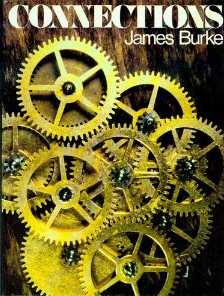
This means that the share of the British labour force working in manufacturing rather than agriculture was three times that of France by 1700, Shaw-Taylor calculated. “The English economy of the time was more liberal, with fewer tariffs and restrictions, unlike on the continent,” he noted.
Consider the source...
Interesting because the climate alarmists typically date “the industrial age” as starting around 1850, which just happens to be when the earth began to warm after the little ice age. No reason at all ever given for their using this time frame. I always went with the introduction of steam power in the 1700s but now maybe earlier still, giving the lie again to the scammers.
This isn’t a really new idea. Enclosure had a lot to do with it. Agricultural workers lost access to common land and became less viable. Other work became necessary.
I would’ve focussed on patent law as the first catalyst and cornerstone to the industrial revolution. It’s all the foundling smaller things that made the big event possible.
Industrial revolution began when the WHEEL was invented thousands of years ago. Human mobility and productivity sky rocketed using wheels.
As a history major in college a half century ago, I attended a lecture by J. H. Plumb, a prominent British historian of that era. Short, bald-headed, and trim, Plumb contended in a lucid and entertaining manner that urban manufacturing culture in Britain began in the 17th Century when popular literature and schoolbooks began to promote the virtues of thrift, good habits, and diligence in the workplace. Plumb also discussed the economic evidence for the importance of manufacturing and the trade in goods. I am pleased to see Plumb’s thesis vindicated.

It came into service in 1722.
No doubt the capabilities of building them to a common standard, and the theories behind doing so would have preceded their adoption by some time, so yes, I would agree, based on that alone, one could reasonably assert the "industrial revolution," had its roots in the late 1600s.
From ChatGPT:
Elizabeth I played a crucial role in fully ending serfdom when she freed the last remaining serfs in 1574/i>
They started to learn to code.
The machines created to weave used what was the first use of punch cards.